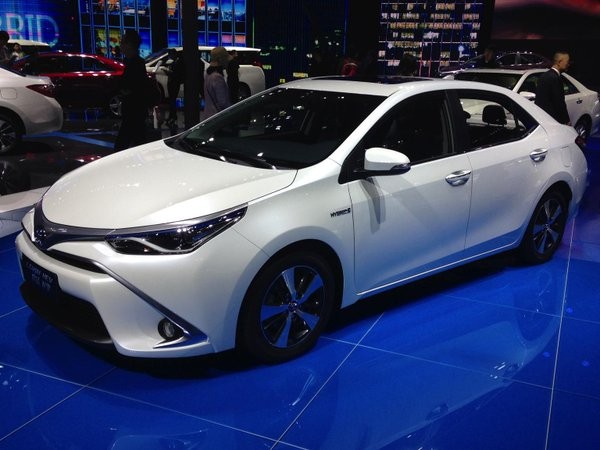GAC Toyota Motor Co., a joint venture between Japanese auto giant Toyota and Chinese carmaker Guangzhou Automobile (GAC) Group, has released China’s first fleet of conventional hybrid taxicabs, Automotive News China reported on Tuesday.
A total of 50 hybrid Toyota Levin compact cars were delivered to Guangzhou Lixin Automobile Service Co., a taxi service operating in the southern Chinese city of Guangzhou, the report said.
The Levin is one of two Chinese offshoots of the 11th generation Toyota Corolla, with the other being made by Jilin-based joint venture FAW Toyota.
The GAC version's battery, electric motor, power control unit and 1.8-liter gasoline engine are manufactured and assembled at Toyota's powertrain plant in Changshu in eastern Jiangsu Province.
The hybrid Levin consumes only 4.2 liters of gasoline per 100 kilometers, which makes it significantly more fuel-efficient than vehicles with conventional engines. In comparison, a taxi with a 1.8-liter gasoline engine would consume 8.2 liters of fuel in order to cover the same distance.
GAC pegged the price tag at 107,800 yuan ($16,507), which is 32,000 yuan more expensive than its gasoline-powered counterpart.
China has been making significant effort to attract its citizens into switching to electric and plug-in hybrids in recent years, going so far as to offering substantial subsidies to would-be buyers. However, conventional hybrids such as the Levin do not enjoy such subsidies, Auto News China said.
But despite this, Toyota remains steadfast in bringing its hybrid cars to Chinese shores. The company is currently assembling hybrid versions of its Camry midsize sedan and importing its higher-end hybrid Lexus models to the country.
In 2015, Toyota sold 1.1 million cars under its brand and 88,000 under the Lexus marquee in China. The company declined to disclose sales of its hybrid vehicles in China for the current year.



























